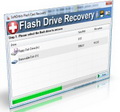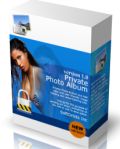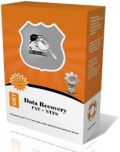Every day we offer FREE licensed software you’d have to buy otherwise.

Giveaway of the day — SoftOrbits Flash Drive Recovery 1.3
SoftOrbits Flash Drive Recovery 1.3 was available as a giveaway on May 16, 2011!
SoftOrbits Flash Recovery is a Flash data recovery tool. It can recover data from any type of storage media (music sticks, digital cameras, flash drives, USB drives, PC cards, etc). This tool restores all corrupted and deleted photos, documents, mp3 and other files even if a memory card was re-formatted.
System Requirements:
Windows XP/ Vista/ 7
Publisher:
SoftOrbitsHomepage:
http://www.softorbits.com/flash-drive-recovery/File Size:
2.24 MB
Price:
$29.95
Featured titles by SoftOrbits

Advanced Woman Calendar helps you achieve or prevent pregnancy predicting your most fertile time of the month by monitoring your menstrual cycle. With an ovulation calendar in your hands, you can view and print a calendar of your safe days and your most fertile days.

Batch Picture Resizer is a new easy and user-friendly picture resizer and watermarking tool. It helps you to resize large groups of pictures in one go for the purpose of sending via email, publishing on the web or just to save space on your hard drive.

Private Photo Album is a photo encyption software you can take on the go. It's perfect for loving couples or teens who want to keep their private photos on the computer private. The application includes a built-in image viewer and slideshow capabilities.

Have you deleted important files from your disk, or your hard drive became corrupted, or you have formatted disk losing your important files and folders? GRT Soft offers data recovery solution which can recover and restore your data in the original format.
GIVEAWAY download basket
Comments on SoftOrbits Flash Drive Recovery 1.3
Please add a comment explaining the reason behind your vote.


I am trying to use this on my 8 gb camera card and on step two no files show up in the 'files to recover' box. I have deleted from here. I tried hitting select all then hit recover and it crashes. I didn't hit select all and it crashes.
Save | Cancel
#35, mike, if you'd bother to pay attention to Windows Update, Windows 7 SP1 broke some USB updates, but KB2529073 fixed that. Ditto for some drive-related issue from a month or so ago. I turned on my BIOS logging, and there are USB issues on my PC, but they don't have anything to do with Windows. I find Windows 7 USB handling to be far superior to XP. When mass storage devices have their drive letters reassigned, Windows 7 automatically updates all references to that drive (the ones that Windows knows about, including those in Libraries, Windows can't fix applications which aren't a part of Windows).
People wonder why I get mad at you. You find garbage on the Internet, then post it here as if it were a fact. No, heads on disk drives absolutely do not "wobble around". Maybe in the 80's; no modern drives have that problem at all. Utilities which erase drives by overwriting several times are less secure, no software can erase a drive as thoroughly as a secure erase command which all modern drives support, and do in a single pass (or instantly on an encrypting drive). The NSA was behind the secure erase command because the software solutions were and are inadequate, multiple passes accomplish nothing except wasting time, and software doesn't have access to the entire useable disk surface (the secure erase command is handled by the drive controller, which does have access to all of the data on the disk).
Save | Cancel
Installed OK on windows 7 but when I selected the flash drive and "scan" it flipped immediately to "recover". On pushing recover the program stops and a window comes up saying "xxxx program has stopped working ... windows is checking for a solution to the problem"
Save | Cancel
@27 (Windowsexplorer)- TY for Your Suggestions and wanting to help, truly appreciated:)
@33 (William) - I am beginning to think my usb Drive (H)is (might be) clashing with my camera memory card (also showing files in "H Drive" - I have to insert it in the same slot on my laptop as big drive, alternating them) - If I were to assign a different letter for big drive - what would happen to "heaps" of shortcuts I have for that Drive, would they automatically change?
Every time Recovery Software comes to GAOTD (many thanks!) - my hopes of solving the riddle of lost pictures come to the surface, so I read with mighty interest all clues.. It's maddening to say the least!
Save | Cancel
@25 (Giovanni)- Hi, got interested in Your Suggestion (TestDisc & PhotoRec), downloaded, and realized I went for DOS v. by mistake (duhh), went back and tried one for sys32 (I have WinXP Pro, all drives use NTFS) - still showed everything in DOS (not my favorite "territory"), so went along with it for a while, but was getting nowhere and had to leave it alone. I have no partition on usb drive, and yet it "said" in options it's very rare for drive not to have partitions - than it showed "no partition" on H Drive (my usb) anyway. I simply don't understand any of it. What am I doing wrong? I would like to give it a go, but not like this. - Thanks in advance:)
Save | Cancel
Haven't found a media it does work on - USB(2 PNY, 9 DaneElec/Duracell, Memorex, 2 Lexar, Sony Microvault, Sandisk Micro Cruzer - 16 in all), CF (SanDisk Ultra II) or even older Olympus media cards. BTW, #34 CompNetTeach, where do I find the *free* Touchstone Undelete? All I find is the pay-ware UndeletePlus under their new eSupport brand.
Save | Cancel
Installed/activated no problem on XP64. Took a 256 mb Transcend USB flash with pics, and other assorted data, erased it with RTools (just a quick single pass with zeroes). Ran this program--didn't find a single bit or byte of any data to recover...I'll leave it at that.
Save | Cancel
I have tried it, I have to say I am a little disappointed. I was using it for the SD card I used in my Kodak 720p compact video cam. Either I used one of the washing programs on the card(I don't recall doing that) or it wasn't able to recover the old files I'd simply cut(not deleted technically) and pasted. So overall, unable to recover files, thumbs down.
Save | Cancel
Hi all!
This one is definitely not working.
Install & activationj OK.
Testad on two laptops, IBM T21 and DELL x300 Latitude
Results:
USB Drive @T21 @x300
RunDisk 1GB not found at all
noname 2GB scan discovered nothing, recover! crashed
A-Data 8GB scan discovered nothing, recover! crashed
Thanks anyway
Save | Cancel
I gave the software a try and now I have uninstalled it. I compared it to an old version of Photorecovery Limited by removing everything from my flash drive (I copied the contents to my desktop). The software showed that nothing was on the flash drive and when I clicked on "scan," moved to step 2. Photorecovery found some previously deleted .jpg files which means the software is absolutely useless to me.
I also didn't care for the GUI as it does not provide any information except about the GUI, and the only option it seems to allow is changing the destination of the recovery.
This is one of those instances where I totally agree with there being much capable free software (Recuva being one) than this.
Save | Cancel
SoftOrbits Flash Drive Recovery is a light weight app you may want to hold onto in reserve, but in testing it gave both mixed & inconsistent results. It does work on/with storage devices that are NTFS formatted, as well as FAT. It does not offer a quick scan, does not work on anything but USB storage, & *may* be a bit buggy -- though it *seems* to start & run fine, it won't work for me in a VM [Virtual Machine], sometimes crashing. I really dislike SoftOrbits Flash Drive Recovery's method of renaming any recovered folders with an added ".del".
Examples: it only detected a small portion of the 5339 files found during a Recuva quick scan, though in all fairness many if not most of those 5k+ files might have been garbage. SoftOrbits Flash Drive Recovery found but could not preview or recover a couple of dozen jpg images on a Kodak formatted SDHC card that Recuva handled almost effortlessly. OTOH I recovered deleted portable apps, & after renaming all the folders [removing the appended ".del"] they did work fine. In a nutshell SoftOrbits Flash Drive Recovery worked just the way it was supposed to many times, but the only thing special was that it's scanning was faster than a deep scan using a few other recovery apps [on a 8 GB storage device it still took a while], & it sometimes didn't do anything at all.
SoftOrbits Flash Drive Recovery is not portable -- that is a *very minor* point, since portability doesn't matter recovering files from a USB device, but it does mean it has to be stored, kept separate from the rest of many repair toolkits. Installation/activation added ~110 registry entries in XP Pro, ~90 in win7 64, but some of those referred to other installed software so mileage will vary [the other apps weren't running, hadn't been run, but there was some overlap with keys & maybe processes that could potentially mean compatibility problems]. Activate.exe adds registry keys/values to the User portion of the registry, so you'll probably want to run it for any Windows profiles where you want to be able to use today's GOTD. The program's folder itself holds 19 files at ~2.4 MB.
Save | Cancel
Piriform's Recuvva works better and is free.
Save | Cancel
If it helps maybe partially explain the difference between some people not having problems & other posting that SoftOrbits Flash Recovery won't recognize their USB storage device...
USB storage devices use electronics to mimic a regular hard drive in Windows -- the electronics they use can vary widely. They can also design it in ways that make the device appear faster than it really is, e.g. a USB stick may have a small portion of fast memory chips, but the majority is made up of slower, cheaper flash RAM, & it's designed to try & use the fast portion 1st every time so it benchmarks well. And faking capacity is not unheard of.
Together with the limits Windows puts on USB handling, that sort of thing makes trying to do more than just look at, read/write files to a USB device in Windows challenging. That's not to say SoftOrbits Flash Recovery couldn't be better/worse in that respect.
* * *
#16: "... Accessing the stick through Windows (XP) however still remained impossible (it kept asking for suitable media to be plugged in) – so even a reformat was impossible using XP. So I’m still stuck with some questions to which I would very much like to get an answer…"
USB device handling in Windows can be a bit problematic, win7 has generally poorer USB handling, but it is different than earlier Windows versions, & though I don't know about the latest series, the 7xx series of AMD motherboard chipsets have problems re: USB. As far as Windows goes, it stores device ID in the registry, & the data in those keys can be overwritten with bad data so that a good device will not operate unless you change/delete that ID -- plugging the device into another port or hub can sometimes work as that effects the ID [e.g. why a USB device will sometimes reinstall, or why you might not see your mouse starting Windows after plugging the mouse into another port]. Far as win7 goes, USB storage device internal chipsets can be partially bad [sometimes right out of the box] rather than failing completely -- while it's usually the reverse problem, working in XP but not win7, a USB stick may work just in win7 because 7 accesses it differently. As far as PC/laptop hardware goes, I have USB storage devices that work on one AMD motherboard, but not a virtually identical motherboard of a different brand, have had them work with some ports &/or hubs but not others, have had different extension cables make a difference, have had USB ports on the front of one case work but not another, despite everything else being identical & so on. Again because win7 handles USB a bit differently than XP, those sorts of problems can be worse in one or the other.
While it's a hassle trying to find/remove all registry entries for a USB storage device, it can work, though it's simpler/easier to plug the device into different ports mounted directly to the motherboard [at the back of the case], &/or try different hubs & different ports on a hub, &/or try a powered hub [powered shouldn't make a difference, but for me it sometimes has]. While I've never seen an explanation as to why, on this rig I've seen different results using different USB extension cables [all were good tested on other PCs]. That said, I've RMA'd [exchanged under lifetime warranties] USB sticks because all of that effort isn't necessarily worth it.
"Part of my decision to install todays SoftOrbit’s application may depend on this capacity to reformat (and thus giving back full functionallity to ‘broken’ storage media), – actually overriding Windows blocks or restrictions (I guess)."
In theory if Windows doesn't see a storage device, nothing can/will touch it. If however the cause is Windows &/or software being broken, another app *may* I think rarely work, bypassing or in effect turning off the process or processes causing problems to begin with. I had a problem with ATI TV Tuner drivers years ago, because to support their new line of USB tuners ATI cobbled together USB support code & stuck it in all their tuner drivers... that nasty, extremely poorly implemented driver code screwed up XP's USB handling, which returned to normal [until a re-start] if/when another app disabled [broke] that bad USB driver. In that sort of situation the best thing to do is fix Windows, which I did by removing the bad drivers.
Formatting USB sticks is another matter. Depending on your hardware, both your PC/laptop & the USB stick, you may be limited to FAT rather than NTFS, & you *may* need to use a formatting utility provided by the manufacturer, though either is a bit rare with current hardware.
* * *
#17: "... Of course I wasn’t so sure if it could find files when you use file shredder programs. These programs usually delete files may times..."
Regular hard drives write data to round platters using floating heads -- since the heads float on a very small cushion of air, they wobble just slightly. Erasing such a drive overwrites data several times in the hope that those heads will wobble enough side-to-side that they won't miss anything [think of how you overlap when you mow the lawn].
That doesn't apply with flash RAM -- you don't have any heads for reading/writing. You also don't want to write to flash RAM more than necessary, since it does wear out. Further complicating things, data is usually written to flash ram in a way that spreads it out rather than concentrating everything in one place & wearing out that portion sooner. Long story short, use special software to erase flash memory.
Save | Cancel
I've only had the chance to try this with one PC, and it fails when trying to recover, like some other comments have noted. If I have time, I will try it with some other configurations.
It appears to only like FAT32 formatted media, and only media that is listed as a "standard" removable drive. It didn't recognize the Memory Stick slot in the laptop, but did recognize the SD slot - for one card only... Didn't bother trying with a (no it doesn't) Plays For Sure MP3 player (haven't found an app that recovers properly, but a few have identified files). It also appears to only initially recognize the 8.3 filename entries and not to properly associate the LFN.
Flash based media has a lifetime of typically 100,000 write cycles (or better as newer higher quality models are introduced). For some flash architectures, a read is actually a destructive read followed by a rewrite - that's why many flash cards write much faster than they read. Obviously, some sectors are accessed more often than others. so those will tend to wear out sooner. What Patrick has experienced is probably either the "boot sector" or a base FAT sector or the beginning of the root directory flash cell has died. Recovery programs can look at the second FAT and low-level access the directory structure, and thus access the normally inaccessible files.
If you've had a problem with flash media, toss it after recovering as much data as possible. (I've got a few interesting key fobs - drill a hole in the dead card.) A hard core reformatting program may be able to lockout the sectors that the bad or flaky flash cell is mapped to, but if one cell failed, aren't others likely to do so too?
Flash media should always be considered temporary, portable storage - always back it up with more permanent media. Always have more than one backup of any data.
As I've mentioned before, Piriform Recuva, CGSecurity.org's TestDisk & PhotoRec, Touchstone's undelete and Tokiwa's DataRecovery are all free programs that are part of my recovery arsenal. Previous giveaways such as Easeus Data Recovery Wizard, EnPlase MultiStage Recovery, and iCare Data Recovery are part of my kit as well. Sometimes, one program works for a situation where another won't, so recovery is a time-consuming, iterative process.
To maximize the recoverability of any storage, DEFRAG regularly! I can't repeat this rule often enough. However, with flash media, this normally shortens the life considerably - my recommended method is to copy everything off the flash drive, quick format the drive, and copy files back onto it.
SoftOrbit's Flash Drive Recovery will probably be "not a keeper" - limited media applicability, FAT32 only, basic capabilities and unreliable operation. Thanks anyways giveawayoftheday.
Save | Cancel
To #16 (Patrick)
Windows has a stupid habit of getting drive letter assignments for
usb drives confused and will sometimes assign the same letter to 2
different drives. The end result of this is the drive will not show
up in windows explorer.
Run "Computer Management", from control panel/administrative
tools, or just run "compmgmt.msc". Then under storage/disk management,
your hidden drive should show up here, just right click on the hidden
drive and select "Change drive letter and paths..." and assign a drive
letter you know is not being used by any other device. Your usb
device should now show up in windows explorer and can be used as
normal drive.
Save | Cancel
I installed and activated this under W7/64 without problems. I tested it on a well-used 2Gb Kingston thumbdrive and attempted to recover various MP3 files from one of the directories on it.
The software identified the deleted directories and files but unfortunately, while it recovers individual files reasonably happily, if I select more than three or four the program crashes. This is entirely repeatable. Will try it with another memory stick and see whether it runs any happier in a Win XP virtual machine.
Disappointing
Save | Cancel
Installed and activated apparently without issue on 7 64 bit. Plugged in a 2GB SD card, system recognized it and the program said file system is FAT so selected it and clicked SCAN and it immediately flipped to the recover screen, showing nothing at all. Am now uninstalling.
Save | Cancel
Waited until the number of comments was worth looking at, and then decided not to download, far too many problems. But I was fortunate enough for GerGn #19 to appear; I tried the free Recuva program he recommended, thanks GerGn it works great, but a few words to make it work even more efficiently. Turn the Wizard OFF so when you next start you can be sure you are scanning your drive of choice, flash drive, hard drive or USB hard drive. Otherwise you cannot be sure where you are scanning until finished.
Save | Cancel
#24 - Brian - I wish I had a copy of that, but I haven't seen that nice of a bonus software with flash drives here in the U.S. in years, unless you count the seemingly ubiquitous U3 stuff that I usually just delete. Any chance GAOTD can get it, I wonder?
Save | Cancel
Installed and activated OK on a Win7x64 system but sad to say it does not work.
Tried it on a well used 1Gig ADATA USB drive which had both current files and lots of deleted files on it to recover---nothing! Ran it three times.
I even deleted the current files then tried to recover them---nothing. Blank display. If it can't do this simple recovery then it's useless to pursue testing. Sorry, not a keeper.
Save | Cancel
#12 - nithin - what is your AV and also your OS? If aezyrider #15's solution does not work, then you'll probably have to lower your AV's security level or else turn off its parental controls, for an initial seat-of-the-pants guess. As always, YMMV.
#22 - fran - There are freeware photo/image recovery programs, for instance, MjM Free Photo Recovery Software and (I believe) Zero Assumption Digital Image Recovery, or you might want to try CNET or Google to see if you can find any more.
Save | Cancel
NITHIN: (You must have combined firewall and anti-virus software.)
You have to give the program internet access through your firewall so it can register.
------------------------
This program works but nothing is 100 per cent. What it was able to recover was done well.
Save | Cancel
Today's giveaway is not bad but, dudes, to recover data from any type of storage media, why not use TestDisk & PhotoRec???
http://www.cgsecurity.org/wiki/PhotoRec
Works like a charm for me and it's FREE!!!
Enjoy!!
Save | Cancel
Recuva is free and works quite adequately. If you buy a flash card from SanDisk you get a free version of a terrific programme called RescuePRO (which is far too expensive at $40 for a year's licence if you buy it commercially). I've been using the free version for about six years now.
Save | Cancel
The program goes through all the right motions and finds files I just deleted and older deleted files, but when "recovered", there is only a 1kb, 2kb, or 4kb file of nonsense.
Save | Cancel
@ #14 - I guess You might need a Recovery Prog that specializes in recovery of photo/images only (accidentally, so do I!:) - Soft Orbis has such Software I believe (on their homepage), but for a whopping price:(, so I can hardly recommend it.. (unless You have spare cash), but they do exist.
Save | Cancel
Just like #18 I crashed trying to recover files.
The program found my flash drive automatically.
It was the only one noted.
Clicked scan. Clicked recover... several times restarting
the software and same results.
Encountered a problem. Needs to close. Sorry for inconvenience.
Clicked debug. Program not responding.
AV shut down during attempts.
Save | Cancel
In response to #16 (patrick)
Question 1 : I assume most recovery software access the disk as a physical device. XP is of course capable of that, too, but I think the only place in XP where you can "see" the physical disks is through the Disk Manager (Start/run/mmc.exe e.g.). There I think you could "reset" the disk.
Question 2 : Since various recovery software use various methods, not all programs recover the same files, in the same "shape" (with or without the initial name e.g.), in the same state. It's therefore quite reasonable **not** to reformat after recovery by program X because program Y could recover more or better.
In your case you want to get back the use of the stick. If you find the Disk Manager too complex you may give a try to DiskWipe (the one from RoadKil) (http://www.roadkil.net). A lovely little utility that is extremely dangerous because it writes zeroes everywhere on the disk you chose (logical or physical). Then you have to format the disk as if it were fresh from the factory. I use when I buy a second hand disk to wipe out any previous content and check the accessibility of every sector on the disk. Hope you find this useful !
Save | Cancel
This program would not scan correctly on a new Windows 7 computer and would crash if recovery was requested. It did run on a three year old Vista, but there it was beaten by the freeware Recuva on all points:
1)it shows irrevant non-deleted files (Recuva shows only deleted files);
2)it would try and fail in the recovery of non-recoverable files (sectors overwritten, as noted by Recuva);
3) it shows DOS-type names and today's date instead of the original file dates (Recuva shows the real names and original file dates);
4) recovered files could not be opened (files recovered by Recuva are 100% OK).
Save | Cancel
Downloaded to 2 PCs that have Win XP on it would not work on either.
Would not do a scan & came up with Windows "Send error report" message
Not impressed with this program.
Save | Cancel
The download went easy as always. I installed the program on two different SW, Vista 32 bit and Windows 7 64 bit. The file is downloaded as a zip-file, where you get a setup-exe program, an activation program and a text. note which guides you through.
If you have to account on your computer you should log on as Administrator, otherwise you get some extra work, I mean in form of reinstall and install again.
I checked it with a 16 GB memory card which I use in my cell phone. There are a lots of pictures and MP3-files that I deleted long time ago. I thought they were gone for good. IT found them. All of them. Of course I wasn't so sure if it could find files when you use file shredder programs. These programs usually delete files may times and there is very very difficult to cover this files again, and even if you some how can cover them they are useless. I had to test it if it could work then. I deleted an 16 USB flash with a shredder program( I'm not going to tell you which, because I do no do add). The flash memory contained both large and small files, as well as pictures, videos, text and so on. Here is the result. It covered up some of the small files but it couldn't cover the large ones. I couldn't accepted either. The program I used to delete files, deleted them 50 times, over and over again. So the result wasn't so surprise for me.
That said, for ever day basic use and if there is something you accidentally deleted or, you deleted on purpose but you want it back so this program DOSE THE JOBB very well.
There are some free programs out there which are able to do the same job as well as this one, or even better.
So it is a choice. If you want this one for a year or you prefer, as I do, to get a freeware.
Save | Cancel
Hi,
Some months ago I recovered a few hundred pictures from a inaccessible FAT-format 8G USB stick using a different data recovery program offered on GAOTD then (Paragon or Easus, I forget which). So far so good, and very pleased indeed to have my pics back!
Accessing the stick through Windows (XP) however still remained impossible (it kept asking for suitable media to be plugged in) - so even a reformat was impossible using XP.
So I'm still stuck with some questions to which I would very much like to get an answer... I've been googling around but haven't found anything that might help me out :-(
1. How is it possible that a software (like todays) does access the stick and even retrieves all data from it to be written on some other location (e.g. harddisk, CD,...) while XP cannot even open the thing. I'm aware of the high level of 'techiness' involved here, but stil... Is there some info on the GAOTD-Forums that I overlooked?
2. If datarecovery programs can bring back seemingly lost or effectively inaccessible data, why don't those program include an option to "reformat after recovery"? Surely that must be possible?
Could someone plse fill us in on this? It would be very instructive to all (or at least a lot) of us.
Part of my decision to install todays SoftOrbit's application may depend on this capacity to reformat (and thus giving back full functionallity to 'broken' storage media), - actually overriding Windows blocks or restrictions (I guess).
Many thanks for any replies!
Patrick.
Save | Cancel
#12 You need to open your AV program and add the link to your allowed websites. Then it will open for you.
Save | Cancel
Downloaded and installed good but that was it. Did Not recognize my flash drive (Lexar 4GB), said it was empty. Did not recognize my Kodak camera. So what does this do and what will it recognize if it wont even pick up a Kodak, who have been around for ever.
uninstalled
Thanks but no thanks GOTD
Save | Cancel
I have a flash drive that stopped responding and I could not access the directory. I installed the flash drive and downloaded the application. Before even running the application I was able to see the directory, I do not give credit to the application for this very minor miracle but I now seem to have my flashdrive back. Now running the program. Do what I nearly always do, after loading run the program (which it does automatically THEN try the activate - does not like it that way round. Says it is activated, but isn't.
Save | Cancel
i cant use this product ,when i completed scanning they asked me for the registration key and when i clicked on the link to get it my antivirus just blocked the site can anyone help me out
Save | Cancel
Installed but how to select a drive ??
Save | Cancel
The program is slow but it's pretty good. I tried it on a flash drive just to see what it would find and it did find everthing I deleted instead of shredding. The flash drive was just under 4GBs so if your going to use this on a large external drive, expect it to take hours. I don't mind how slow it works if it does an it did work.
My suggestions to the developer:
1) Add the option to shred items found.
2) Let it scan our C drive.
I used a W/7x64 to test it.
Save | Cancel
Installed fine on Win7 Home but did not find anything on a Kingston 4 gig pen drive even though I know that it had files deleted last week.
tried another install but still failed to work.
Save | Cancel
Scanned a videocam on which there were several deleted files to recover. Scanned drive, but then only offers ALL files found without showing those which are valid files, and those which have been deleted. Nor does it show file details only system file name, so you cannot identify by date or size.
Save | Cancel
Installed fine on Win7/64. Program worked on thumb drive recovering files I selected. Did not recognize Nikon CoolPix digital camera drive.
Save | Cancel
I have Win7 x86
this SW installed properly.
BUT,
i just could get it to scan my 16 GB pendrive forget about recovering anything from it ...tried: Rus as Admin, Changed compatibility to vista ,xp.
PS : my Pendrive;s Filesystem is NTFS, could that be the problem ??
Save | Cancel
#5 visual basic is for source, you need a win32 debugger like ollydbg.
Save | Cancel
#3 try visual basic.
Save | Cancel
Figured out the crash problem.. Don't hit select all when the scan completes, just pic the files you want to recover. It only recovered 5mbs for me. Not sure how much the thumb drive has stored throughout it's history, so I'm not saying the program sucks.
Save | Cancel
I just ran tried this program on an 8 gig toshiba thumb drive. it had been reformatted numerous times. After scanning, the results showed many old files and file fragments of mp3s and other small files that used to be on it. however, when i selected the files i wanted to recover and clicked the recover button, the program crashed. I don't care to try and debug this, but if someone knows a fix, don't keep it a secret.
Save | Cancel
A wonrderful program. I needed a software like this to add to my library of wonderful GAOTD gifts. Thanks GOATD.
Save | Cancel